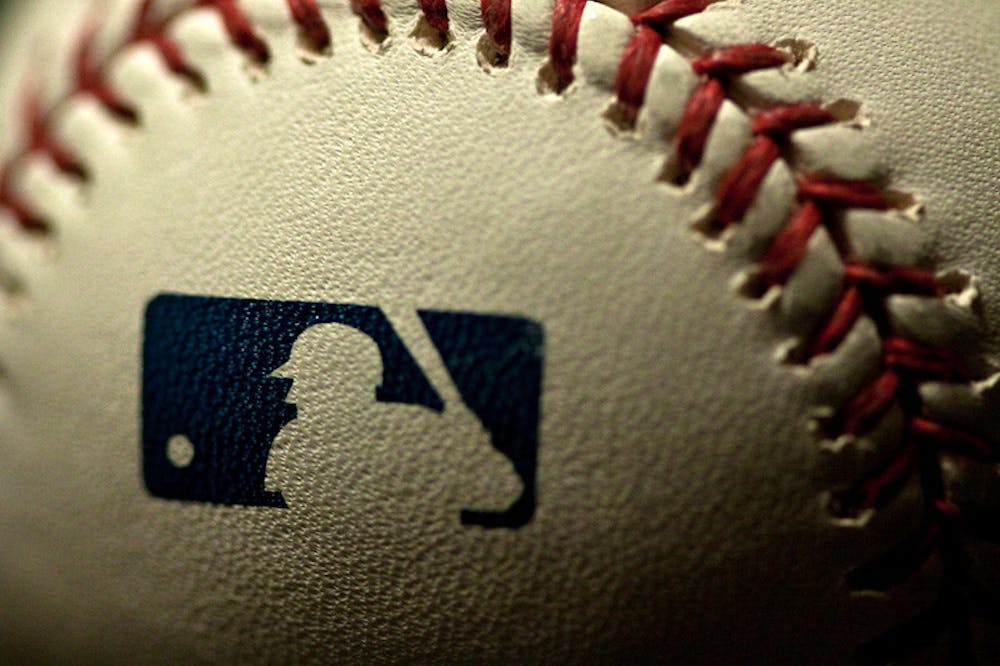
Growing up with two brothers and all male neighbors, I used my freakish knowledge of baseball stats to fit in as “one of the boys.” When asked at age 12, “If you could meet one celebrity, who would it be?” I answered New York Yankees announcer Michael Kaye.
I will never forget one September night in middle school, sitting in Hebrew school, wishing as usual that I was home watching the Yankees in the playoffs. During a break, two boys in my class were talking about baseball, and I butted in to correct something one of them had said. With disdain in his voice, one of them responded, “How do you know all this? There’s no way you watched the game last night.” To which I stood up and said, “Isn’t Hiroki Kuroda’s pitching motion so weird?” and imitated the hitch at the top of his windup.
It was also around this time when it dawned on me how strange it was that there were no female coaches in baseball. I remember watching a St. Louis Cardinals game in 2011, Mike Matheny’s first season as the team’s manager. The announcers chuckled about how before the Cardinals hired him, Matheny’s only previous experience had been coaching a Little League team. As an 11-year-old who dreamt of growing up to be anything remotely related to baseball, I was perplexed. I knew plenty of women who coached Little League teams, yet I only ever saw men in the Major Leagues.
Before I was able to realize what was happening, I was waved off of the scent of becoming the commissioner of baseball and moved onto different career aspirations. A few weeks ago, one of the key stories behind why I didn’t see more people who looked like me involved in baseball growing up was laid out in front of me.
In the span of a week, ESPN and The Athletic published articles accusing former New York Mets Manager Mickey Callaway and General Manager Jared Porter of sexually harassing reporters and employees. In the days and weeks since, women involved in Major League Baseball (MLB) have come forward with stories of these two men and others harassing them, insulting them and cultivating an unsafe work environment for people like them.
These allegations have also revealed that for years, harassers have moved from team to team, unhindered by their reputations while women have scrambled to stay out of their wake. Lindsey Adler, Yankees writer for The Athletic, expressed on Twitter following the Callaway and Porter allegations her insights on workplace culture in the MLB.
“What I would like to be clear to people who care about baseball is that for every Jared Porter or Mickey Callaway, there are 200 otherwise good people brushing off smaller sexist insults and indignities,“ Adler said.
The MLB has ignored the toxic environment it creates for women and left those who feel the effects of its toxicity most to cope with the consequences.
Reading these articles, it dawned on me that there are likely many more women like me who grew up dreaming of becoming baseball writers, managers or commissioners, whose dreams were quietly deferred or more brutally squashed along the way. Maybe, like me, they thought that there was something about being a woman (don’t ask me what) that made it impossible for them to be in baseball, or maybe they were more explicitly told “no” or made to feel unwelcome. Regardless of the means of denial, we are all on the outside looking in because of this system that has harbored harassers and turned women away.
This problem is exacerbated by a seemingly universal “don’t ask, don’t tell” policy around the MLB. All teams involved in the Callaway and Porter scandals have claimed that when interviewing and performing background checks on these two men, nothing related to sexual harassment came up. While I’m not accusing these team executives of outright lying, many writers and sources around the league described these men’s behavior as the “worst kept secret in sports.” In other words, if those in power in the MLB didn’t know these stories, it is because they were not asking the right questions or looking in the right places.
It is not too late for the MLB to improve their culture. Instead of making sure they are not vulnerable to sexual harassment lawsuits when making hires, MLB executives could include “doesn’t make women uncomfortable” on the list of intangibles they look for in coaches and front office employees. Making sure someone does not have any official complaints lodged against them simply does not cut it in a business that systematically discourages women from reporting incidents.
If baseball wants to remain relevant and boost its popularity in the coming years, it has no choice but to begin including new voices and reaching new audiences. Baseball’s popularity has steadily declined since 2012. Against all odds, I have remained an avid baseball fan throughout my life, but the MLB could not possibly have made it more difficult for me to relate with the game. Baseball fans who do not fit the sport’s primary demographic, namely white and male, have spent years yearning to see people who look like them involved in the sport, and many have decided to try their luck with football or basketball instead.
Besides being the morally right thing to do, baseball is obligated to integrate the professional voices of women and people of color for the survival of the sport. Not only will these voices help reach new audiences, but they will also ensure that the MLB is employing all of the most qualified experts for the monumental task they have in front of them.
When I look around baseball today, I see glimmers of hope for a more inclusive future. As a Yankees fan, I have the absolute pleasure of consuming the fantastic journalism of Lindsey Adler and Marly Rivera and listening to Suzyn Waldman on the radio. Kim Ng recently became MLB’s first female general manager, and Bianca Smith became the MLB’s first Black female professional coach. These women have defied all odds to stake out successful careers in baseball, and they have contributed to the game in ways well beyond shattering glass ceilings.
In her first press conference as the Miami Marlins GM, Ng recognized the gravity of her hiring.
“There’s an adage, ‘You can’t be it if you can’t see it.’“ Ng said. “I suggest to them that now you can ‘see it.’”
For me, Ng’s words are bittersweet. They’re bitter because I wish that Ng had not been passed over for this job so many times. They’re bitter because of the years of the stifling environment that I now know Ng had to work under for so many years while being passed over for GM positions. They are bitter because I wish with all my heart that 11-year-old Alanna had been able to hear them and hang a poster of Ng on her lilac bedroom walls. But they are sweet because I know that they open the door for many, many more girls to follow in her path.
Errata: this article originally misstated Kim Ng’s quote. The News-Letter regrets this error.

















